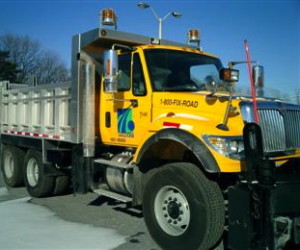National research group urges state to invest money in aging systems

A new study finds that the state’s deficient highway system is costing citizens more than $1,000 each annually in repairs from crashes, congestion caused by deteriorating roads.
Every year, drivers in the Philadelphia region waste the equivalent of two days stuck in traffic jams, according a study released Wednesday by a national research group.
Called Pennsylvania Transportation by the Numbers, the report depicts a grim outlook without further resources, a news release from the Pennsylvania Department of Transportation (PennDOT) said.
PennDOT Secretary Barry J. Schoch said the report by TRIP, a Washington, D.C., nonprofit, demonstrates the real challenges that Pennsylvania’s transportation system is facing given its flat revenue stream and increasing demands.
“We simply cannot meet the challenges facing our transportation system without increasing investment into our aging roads, bridges and transit services,” Schoch said. “Gov. Corbett’s plan calls for an increased investment of $1.8 billion in five years which will help us reverse years of underinvestment and do what’s right for our state’s future.”
One of TRIP’s findings indicates that the average cost to Pennsylvania drivers is a staggering $9.4 billion annually due to additional vehicle repair costs, crashes and congestion resulting from substandard roads. According to TRIP, the average driver in the Harrisburg, York and Lancaster area is paying an extra $1,646 annually while drivers in Philadelphia are paying $1,798 and Pittsburgh drivers pay an extra $1,418.
Throughout Pennsylvania, 37 percent of major roads and highways provide motorists with a rough ride, the study found. A total of 42 percent of Pennsylvania bridges show significant deterioration or do not meet current design standards. The state’s major urban roads are becoming increasingly congested, with drivers wasting increasing amounts of time and fuel, the report said.
Traffic crashes in Pennsylvania claimed the lives of 1,286 people in 2011. The traffic fatality rate in 2011 on Pennsylvania’s non-interstate rural roads was 2.33 traffic fatalities per 100 million vehicle miles of travel, nearly two-and-a-half times higher than the 0.95 traffic fatalities per 100 million vehicle miles of travel on all other roads and highways in the state, the report said.
The report found that a disproportionate share of highway fatalities occur on Pennsylvania’s rural, non-interstate roads. In 2011, 45 percent of traffic fatalities in Pennsylvania occurred on rural, non-interstate routes, while only 25 percent of vehicle travel in the state occurred on these roads.
“Addressing Pennsylvania’s needs for a safe, efficient and well-maintained transportation system will require a significant investment boost at the federal and state level. But not addressing the state’s need for an improved transportation system will result in even greater costs to the public,” said Will Wilkins, executive director of TRIP, in a news release.




